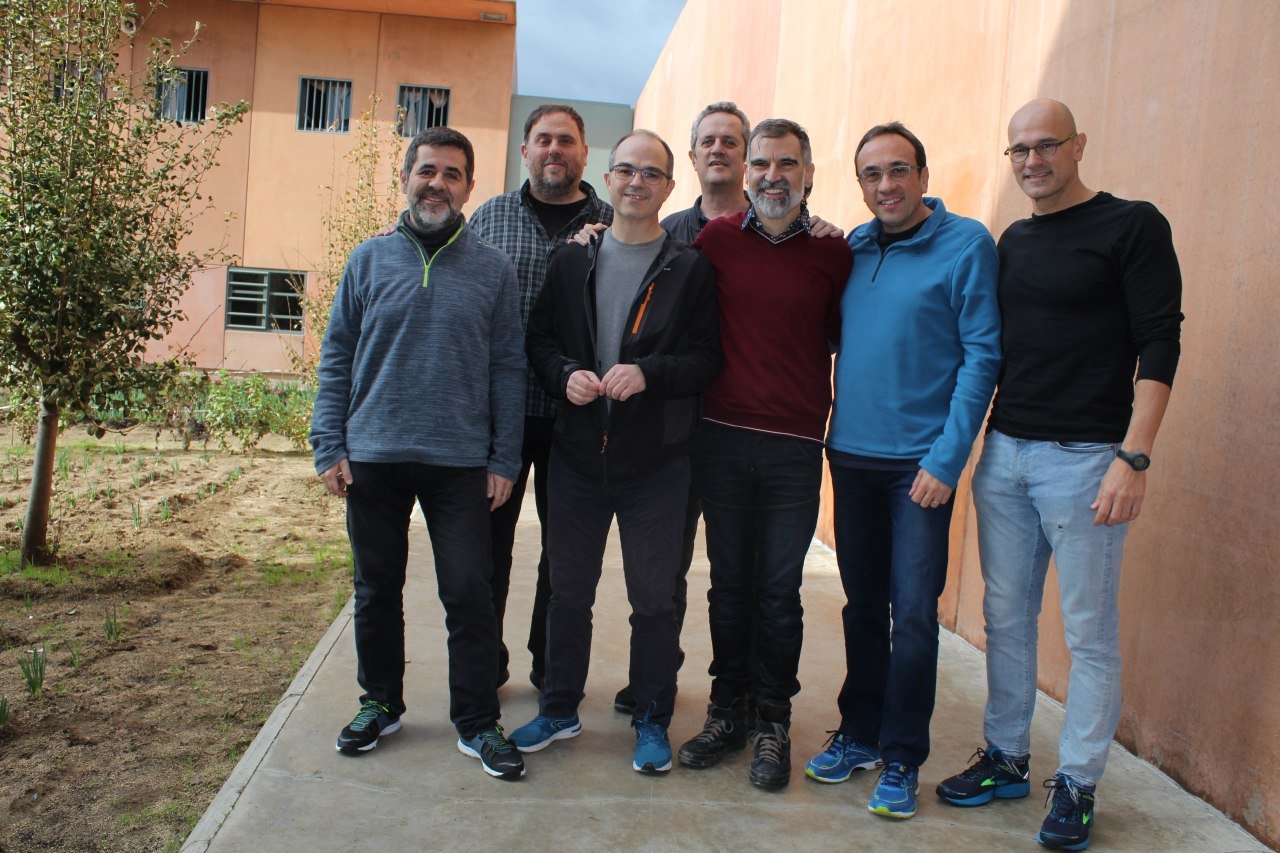The Catalan political prisoners on hunger strike and their defence counsel have started a campaign to raise the international profile of their situation. They've sent letters to forty leading figures in European politics explaining the situation, the reasons behind their hunger strike and the violations of basic rights on the part of Spain. The prisoners' lawyer, Jordi Pina, also announced they will appeal to the European Court of Human Rights after the inaction of Spain's Constitutional Court.
The spokesperson for the prisoners on hunger strike, Pilar Calvo, told a press conference in Madrid that the letters have already been sent. Among the recipients are the heads of government of EU member states and the presidents of the European institutions.
In the letter, they denounce the fact that the delays in Spanish courts hearing their appeals are preventing them from turning to European courts. The Constitutional Court, they explain, has thirty days to resolve appeals against pretrial detention whilst some of theirs were pending for over a year. They explain that this has led them to decide to undertake the hunger strike with which they feel themselves to be "defenders of the rules and principles and foundational values of the European Union". "This letter does not intend otherwise than updating you [sic] on this grave situation that in 21st century Europe we truly believe should not occur in any case," they conclude.
A copy of the letter has been forwarded to Spanish prime minister Pedro Sánchez. They say they hope it "won't fall on deaf ears", among those who make "basic rights an emblem of their political and even ethical commitment".
Turning to European justice
As for the appeal to the European Court of Human Rights (ECHR), it will be over the suspension of the imprisoned Oriol Junqueras, Jordi Sànchez, Raül Romeva, Jordi Turull and Josep Rull as deputies in the Catalan Parliament. The decision from the Supreme Court's to this effect was last week upheld by the Constitutional Court. The defence believes this decision contradicts the doctrine of the court itself. Pina says that in general, the court has accepted to hear appeals in the case, but "forgotten them in a drawer" which "violates [the prisoners'] right to defence".
To turn to the ECHR, all possible options within the national justice system have to have been exhausted, something which hasn't yet happened in this case. Pina, however, has explained they'll argue there is a "systematic block" and "delaying tactics" being employed by the Spanish courts.
There is no precedent of a similar case being accepted by the ECHR at this stage, but their defence is to go ahead with studying and firming up its plans anyway. They are also taking into account the possibility that the European court won't accept to hear their case until there's a firm sentence in Spain, but believe "there is a chance" it won't come to that.
Calvo, the spokesperson, also dispelled rumours that the prisoners are planning to end the hunger strike imminently. "They'll end the hunger strike when they believe all its objectives have been met," he said.

